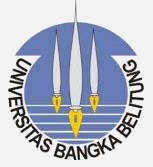IMPLEMENTATION OF THE THERAPEUTIC COMMUNITY REHABILITATION FOR NARCOTIC PRISONERS AT NARCOTICS PRISON CLAS II A JAKARTA
Abstract
Based on data from the National Narcotics Agency (BNN) in 2018 drug users come from among students and workers as much as 3.21 percent which is equivalent to 2,287,492 people who commit drug abuse. The impact of prison content has also increased. One of the special prisons for convicted drug cases is the Narcotics Prison Class II A Jakarta. Narcotics Prison Class II A Jakarta is a special prison that has the task of carrying out the rehabilitation of drug prisoners. Data shows drug convicts in the Special Class Narcotics Prison II A Jakarta are increasing. Data on prison occupants in 2016 were 3,168 people, in 2017 there were 2,664 people, in 2018 there were 2,416 people and in 2019 there were 2,602 people. One form of social rehabilitation carried out is the therapeutic community. Narcotics Prison Class II A Jakarta is one of the government institutions that also have an obligation to apply the values of good governance, one of which is the value of transparency. Transparency is very important to avoid undesirable things such as abuse of authority by certain parties. This research raises the issue of how the implementation of therapeutic community rehabilitation for drug prisoners in Class II A Narcotics Prison Jakarta?. This research uses a qualitative approach. This research is descriptive. Data collection techniques carried out by interview, observation, and study documentation. The research subjects were the Head of Guidance for Prisoners and Correctional Students, the supervisor of community therapeutic activities and drug prisoners. The research location is Narcotics Prison Class II A Jakarta. The purpose of this study was to determine how the implementation of therapeutic community rehabilitation in Special Narcotics Prison Class II A Jakarta. The results showed that Narcotics Lap Class II A Jakarta was not optimal in carrying out the therapeutic community rehabilitation. Few prisoners are involved in social rehabilitation activities. Besides that, the work atmosphere is less conducive. The relationship between the leadership and staff is not good, which arises a sense of mutual suspicion between staff and leaders. This is due to the non-transparency of the use of the budget for therapeutic community rehabilitation activities.
Downloads
References
Ali, E. M. (2013). Kepemimpinan Integratif Dalam Konteks Good Governance. Jakarta : PT. Multicerdas Publishing
Bungin, B. (2010). Analisis Data Penelitian Kualitatif : Pemahaman Filosofis dan Metodologis Ke Arah Penguasaan Model Aplikasi. Jakarta : PT. Rajagrafindo Persada
Balitbangham, (2017). Implementasi Tata Nilai Kami Pasti Untuk Meningkatkan Akuntabilitas Kinerja Dalam Rangka Mewujudkan Wilayah Bebas Dari Korupsi (WBK) dan Wilayah Birokrasi Bersih dan Melayani (WBBM) di Lingkungan Kementerian Hukum dan Hak Asasi Manusia. Jakarta : Percetakan Pohon Cahaya
Indradi, S. S. (2017). Etika Birokrasi dan Akuntabilitas Pemerintahan. Malang : Intrans Publishing
Pujileksono, S. (2017). Sosiologi Penjara. Malang : Intrans Publishing
Moleong, L. J. (2014). Metode Peneltian Kualitatif. Bandung: PT. Remaja Rosdakarya.
Journal
Biafri, V. S. (2019). Pembinaan Teroris Anak Di Lembaga Pembinaan Khusus Anak Klas I Tangerang. Sosio Konsepsia , 8 No. 02, 16.
Cahyadi, A. (2016). Penerapan Good Governance Dalam Pelayanan Publik (Studi Tentang Kualitas Pelayanan Elektronik Kartu Tanda Penduduk Berbasis Good Governance di Kecamatan Sukolilo Surabaya). Jurnal Penelitian Administrasi Publik , Vol. 2 No. 2, hal 479-494.
Gani, S. 2013. Therapeutic Community (TC) pada Residen Penyalah Guna Narkoba di Panti Social Marsudiputra Dharmapala Inderalaya Sumatera Selatan, Jurnal Konseling dan Pendidikan Volume 1 Nomor 1, Februari 2013, Hlm 54-57.
Fikma, I. 2016. Implementasi Rehabilitasi Terhadap Anak Penyalah Guna Narkotika (Studi di Wilayah Kepolisian Daerah Lampung), Jurnal Fiat Justisia Journal of Law ISSN 1978-5186 Volume 10 Issue 2, April-June 2016.
Setiadi, W. 2018. Korupsi di Indonesia (Penyebab, Bahaya, Hambatan dan Upaya Pemberantasan, Serta Regulasi), Jurnal Legislasi Indonesia Vol 15 No.3 - November 2018 : 249-2602
Syam, M. I. B. & Suehartono. (2013). Terapi Holistik Terhadap Pecandu Narkoba. Teraputik Jurnal Bimbingan dan Konseling , Vol. 1 Nomor 1, 54-57.
Act
Hukum dan Ham. (2006). Kompilasi Instumen Internasional Hak Asasi Manusia dan Dokumen-Dokumen Terkait Dengan Praktek Dalam Lembaga Pemasyarakatan.
Peraturan Pemerintah No. 31 Tahun 1999 Tentang Pembinaan dan Pembimbingan Wargabinaan Pemasyarakatan
Keputusan Menteri Kehakiman dan Hak Asasi Manusia No : M.04.PR.07.03 tahun 2003 tanggal 16 April 2003 tentang Pembentukan 13 (tiga belas) unit Lembaga Pemasyarakatan Khusus Narkotika
Keputusan Direktur Jenderal Pemasyarakatan Nomor PAS-14.OT.02.02 Tahun 2014
Copyright (c) 2020 Owned by the Author(s), published by Berumpun: International Journal of Social, Politics and Humanities

This work is licensed under a Creative Commons Attribution 4.0 International License.










